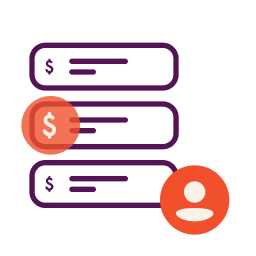- It’s a good idea for small business owners to have a business checking account to separate their personal finances from their business finances, and for some, an online-only account may be a good idea.
- Online banking can be extremely convenient for small businesses who don’t need to go to a physical bank or make a lot of cash deposits or withdrawals.
- Before you open an online business checking account, it’s a good idea to consider your options and make sure the account meets all your business needs.
- Find out more about online business checking accounts for small businesses and whether it’s the right choice for your small business.
Why Consider an Online-Only Business Account?
Online-only business checking accounts are very convenient for small businesses that don’t need a physical bank for in-person bank needs. Entrepreneurs, startups, sole proprietors, and freelancers in particular can benefit from the convenience and ease of online-only banks, especially if they don’t do much business in cash and mostly accept digital payments.
Many online-only bank accounts have partnerships with ATM networks which will allow you to make cash deposits or withdrawals with a business debit card. They’ll generally also allow you to use an Automated Clearing House (ACH) network to take payments or pay invoices for your business, and tend to offer other digital services like bill pay, wire transfers, and other banking services. A digital bank can also help you get business credit cards to help you manage cash flow and earn rewards. Plus, they’re usually paperless.
You may also consider an internet business account for integrations with your accounting software or bookkeeping software like QuickBooks. These kinds of accounts tend to make it easy for you to allow another person, like a partner or a certified public accountant (CPA), to access the account when they need information or be signed on as an account holder. They also tend to have robust mobile banking through a mobile app where you can easily check your account balance and make transactions, including mobile check deposit or transferring money between accounts.
Because they don’t have a physical presence, online banks may have monthly maximums on cash deposits or withdrawals, and they may charge transaction fees. These banks may also not offer other services like business savings accounts or business loans, but they may have other perks, like cash back on debit card purchases. Online banks may have minimum opening deposit limits or minimum balance requirements, so it’s a good idea to make sure you understand the limits and fees so you can meet your business banking needs.
It’s important to make sure that any bank you open an account with is a Member FDIC. FDIC-insured banks make sure that your money is safe through deposit insurance.
Pros and Cons of an Online Business Bank Account
There are many pros and cons to online banking.
Pros
- More convenient, faster application process
- Robust mobile apps and mobile banking features
- Integrations with accounting software
- Doesn’t matter where you’re located
- Offers direct bill pay and instant transfers
- Digital banking means you can go paperless
- Many fee-free or low-fee options available, including no overdraft fees
- May offer higher interest rates for savings accounts or interest-bearing checking accounts
- May offer ATM fee reimbursements
- Often have good online customer service
Cons
- No or very few in-person or physical locations
- May be difficult to deposit or withdraw cash depending on ATM access
- May have transaction limits
- May charge a monthly maintenance fee or fees for incoming wires
- May not have other services like business loans
Typical Features and Fees Associated With an Internet Business Bank Account
Most online banks offer convenient features, such as:
- Mobile banking, including a mobile app
- Online bill pay
- Account-to-account transfers (including to your personal checking account)
- Mobile check deposit
- ATM network access
- Standard online security services
- Connected business credit cards with major providers like Visa or Mastercard
- Online customer service, including chat, email, or phone services
- Integrations with other software or applications, like accounting software (QuickBooks, etc) or ecommerce solutions (Shopify, etc)
How to Choose the Best Online Business Bank Account for Your Small Business
When you’re looking for a small business checking account, there are several things you should look for, such as:
- Do you need to do physical banking? If you deposit a high volume of cash every month or want a personal relationship with your bank, an online bank may not be right for you. You can also have two bank accounts — one at a physical bank and one (or more) online — if you want to use an online bank to get potentially higher rates on an account that earns interest.
- Do you need free business checking? If you have a high monthly revenue, the fees that some banks charge may be worth the other perks that they offer. But if you don’t have a high volume of business, fees may eat into your profits too much.
- How many free transactions per month does the bank offer? If your business transacts a lot, you probably want unlimited transactions. But if you only have a few paying customers or don’t pay many bills online, a limited number of transactions per month may not be a problem.
- What are the minimums? Some financial institutions have a minimum deposit requirement to open a checking account. You may also be required to maintain a minimum daily balance.
- What do they charge fees for? Make sure you understand whether or not the bank account has a monthly service fee or charges for transactions like domestic wires or international wires. If you work with a lot of cash, check and see if they have free cash deposits or if they charge you a fee after a certain amount or number of monthly transactions.
- What do they integrate with? Many online banks offer integrations with accounting or bookkeeping software, payment solutions, or ecommerce solutions to streamline your payment deposit processes or credit card payments.
- What other services do they offer? Some online banks have great savings accounts with high annual percentage yield (APY), but others may only offer business checking. If you want to have a one-stop-shop banking option where you can get a business loan or business line of credit, you may want to consider a traditional, brick and mortar bank instead of an online option.
Requirements to Open a Business Checking Account
Different banks will have different qualifying requirements to open a business checking account, so you should always check before you start the application process. However, in general, you can expect to need the following to open a business bank account:
- Your business name and address
- Contact information (personal and business)
- Your social security number and that of any other account holders
- Identification (such as drivers license or passport)
- Your employer identification number (EIN) (except for sole proprietorships, who may not have one)
- Business formation documents
Best Online-Only Business Checking Accounts
The best business checking accounts will match up to your business’s individual needs, but here are a few online business checking account providers we recommend:
Found Banking
Small Business Checking by Bank of America
Bluevine Business Checking
Chase Business Complete Checking
Green Dot Bank
Green Dot Bank offers banking as a service, which provides program management services on top of banking solutions. This includes branded credit cards, cash deposits and withdrawals, peer-to-peer payments and instant payments, and even payroll and tax services. In terms of business checking accounts, they offer mobile banking, ATM access, customer support, and customer rewards, plus interest-bearing savings accounts.
All information about this lending option has been collected independently by Nav. This option is not currently available through Nav.
Nav Business Checking
Nav Business Checking offers multiple organized accounts that automatically separates transactions by category to simplify your bookkeeping. You can also issue employees virtual cards and send money across multiple accounts as well as access useful business tools for your growth.
Nav’s Verdict: Online Business Checking
Online banking can be a convenient solution for small businesses, particularly if they don’t need the in-person services of a traditional, physical bank. Mobile banking applications, ATM capabilities, and integrations can make online banking a simple way to keep on top of your business finances.
Nav can help you find the solutions you need for your small business’s financial health, from business formation services to business credit cards and more. Sign up for Nav to see your business and personal credit scores, track cash flow, and get personalized recommendations for business financing you won’t get anywhere else.


Have at it! We'd love to hear from you and encourage a lively discussion among our users. Please help us keep our site clean and protect yourself. Refrain from posting overtly promotional content, and avoid disclosing personal information such as bank account or phone numbers.
Reviews Disclosure: The responses below are not provided or commissioned by the credit card, financing and service companies that appear on this site. Responses have not been reviewed, approved or otherwise endorsed by the credit card, financing and service companies and it is not their responsibility to ensure all posts and/or questions are answered.